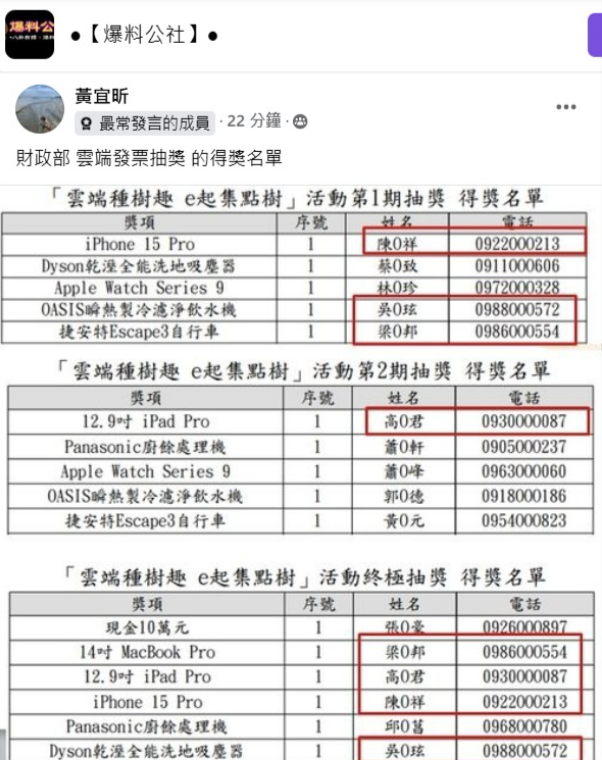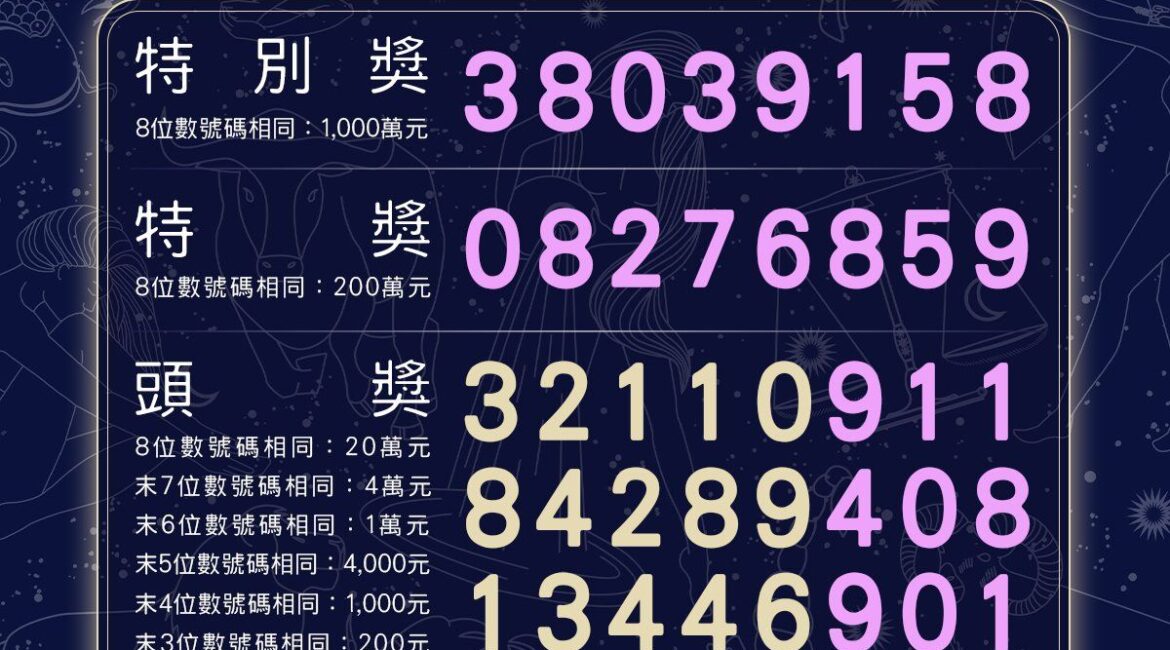圖片取自財政部臉書,統一發票113年78月份兌獎
雲端發票抽獎活動4人中獎2次,震撼財政機關舉辦發票兌獎公正性

發票獎金與預算是全體消費者掏腰包貢獻的「公共財」
待財政部化解此波公關挑戰 進一步思考發票給獎制度的優化或改革
English Summary
A recent cloud-based lottery event in Taiwan, “e-tree point collection,” sparked controversy when four individuals won twice, raising questions about the integrity of the system. With over 90,000 participants, a popular influencer noted that the odds of this happening were extraordinarily low. In response, Taipei’s National Tax Bureau issued a statement detailing the transparency of the lottery process, asserting that all entries undergo verification and drawing in the presence of lawyers to ensure fairness. An investigation into these duplicate wins is currently underway.
This incident has triggered broader discussions online, with some accusing the lottery system of potential favoritism or internal manipulation. Concerns were voiced about whether the system is genuinely random, especially given that prize funding—sourced from 3% of Taiwan’s annual sales tax revenue—has been publicly allocated for nearly 60 years. The accumulated funds serve both as incentives for consumers to request receipts and as a public asset to control tax evasion and promote uniform receipts(GUIs). Critics argue that the Ministry of Finance must demonstrate transparent and fair prize distribution, as these prizes are essentially “public assets” funded by consumers.
The controversy has spotlighted the broader use of lottery funds, which finance various public initiatives, including promoting GUI usage through events like marathons and other activities, such as this contested “e-tree” event. As the Ministry of Finance navigates these integrity concerns, there may be calls for legislative oversight to ensure transparent and purposeful use of these funds.



